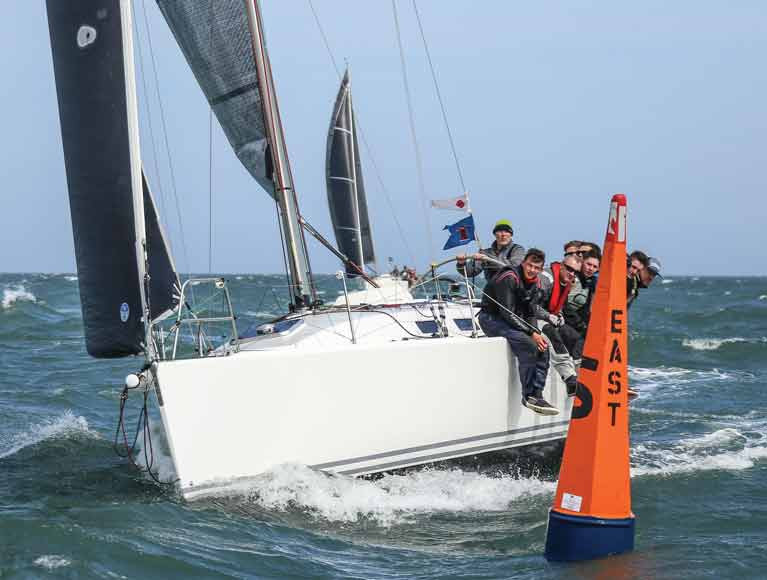There has been overwhelming support from a Dublin Bay Sailing Club (DBSC) survey to going racing this season despite the problems posed by COVID-19.
The anonymous survey got a response from over half of DBSC's 1,200 members There showed 'huge support for extending the season and reformatted Tuesday racing for the keelboat and cruiser fleets'.
Following the government roadmap announcement last Friday (1st of May), DBSC says it is 'encouraged but needs to wait for formal guidance from Irish Sailing'.
White sails option
Club Commodore Jonathan Nicholson says the survey also showed a white sails option to reduce crew numbers was popular.
'This and other options need further consideration along with a dialogue with the DBSC class captains' Nicholson says, for the massive 250-boat fleet.
Support for running two DBSC races on Saturdays was less clear cut but maybe considered based on the season start date.
Adapting the DBSC format
There was near-unanimous support for adapting the race formats given the new constraints that DBSC will be operating under.
The responses are summarised below by DBSC on its website as follows:
Intentions to race this season?
This question was posed a number of times, albeit with a different perspective. Of particular note is the response to the question “Having spent time thinking about this and looking at some of the options DBSC is thinking about how likely are you now to join this season”. 75% of responses were either likely or very likely to join. There is also considerable support for entering regardless of the start date of the season.
What facilities are needed to race?
There is a need for changing rooms etc. to be addressed especially for dinghy and smaller keelboat classes, whilst access to food and bar was considered a nice to have, this was not deemed a deterrent to racing.
Given the nature of this season what revisions to the programme would be welcome?
There was huge support for extending the season and reformatted Tuesday racing for the keelboat and cruiser fleets. Support for running two races on Saturdays was less clear cut but maybe considered based on the season start date. The white sails option to reduce crew numbers was popular. This and other options need further consideration along with a dialogue with the class captains. There was near-unanimous support for adapting the race formats given the new constraints that we will be operating under.
Interpreting the comments is more complex. While many people identified themselves, the survey remains anonymous. All feedback, which was overwhelmingly positive, was considered.
We absolutely recognise there is a concern about personal safety and we will only run racing when the government and Irish Sailing have given their approval and the waterfront clubs are ready to support this activity in a safe and responsible manner. Moreover, rest assured that DBSC will prioritise the safety of all the volunteers who make our racing possible. We acknowledge we may have a reduced number of entries this year as unfortunately, it will not be possible for all members of our club and community to race this summer.
In summary, there is a very clear appetite to go racing.

























































 alt="The Half Tonner Swuzzlebubble, sailed by James sand David Dwyer of Royal Cork Yacht Club, is ICRA's IRC Boat of the Year for a second time" title=" The Half Tonner Swuzzlebubble, sailed by James sand David Dwyer of Royal Cork Yacht Club, is ICRA's IRC Boat of the Year for a second time" />
alt="The Half Tonner Swuzzlebubble, sailed by James sand David Dwyer of Royal Cork Yacht Club, is ICRA's IRC Boat of the Year for a second time" title=" The Half Tonner Swuzzlebubble, sailed by James sand David Dwyer of Royal Cork Yacht Club, is ICRA's IRC Boat of the Year for a second time" /> 




